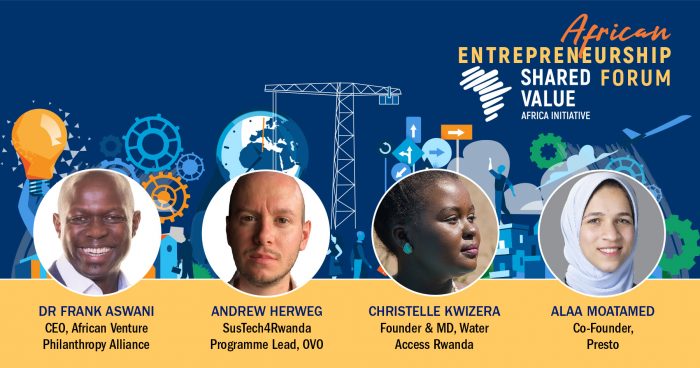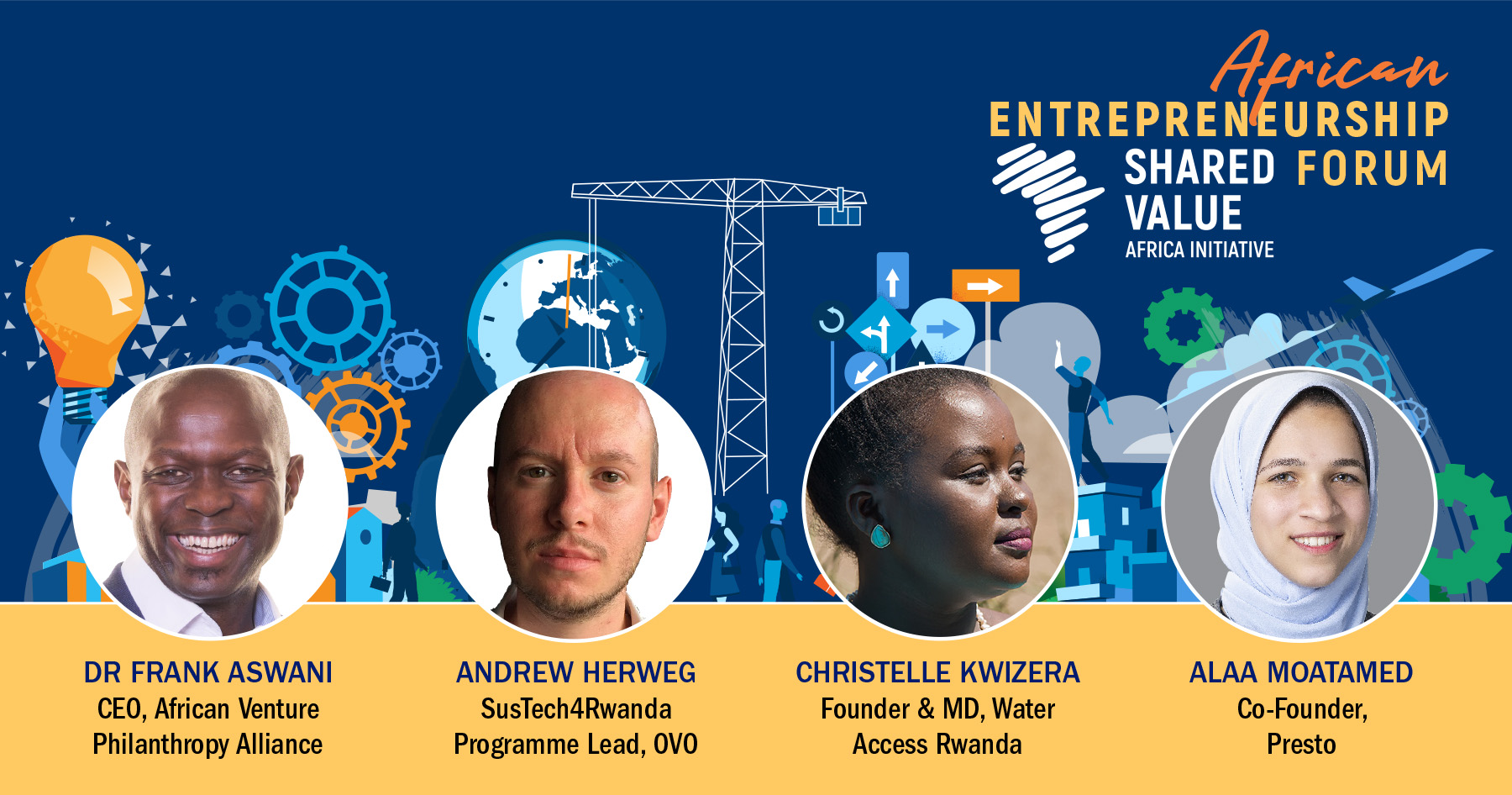Africa’s future lies with its entrepreneurs

Johannesburg, 23 February – Africa is in a very precarious situation. Unemployment rates are high in many countries with a continent-wide job deficit of about nine million jobs annually. Aid to Africa has reduced by about 20% over the last five years – a trend that is likely to continue – and many governments have become dependent on debt and borrowing as a funding source.
Across the continent, countries also face numerous intractable sustainable development challenges, including increased competition for resources accompanying major population growth, and the social and economic implications of the COVID-19 pandemic.
Both Africa’s salvation and its future lie with its entrepreneurs – Africans who are shaping their own destinies and, through social innovation and entrepreneurship, have been developing local solutions to the sustainable development challenges they face.

This was the overriding message from speakers and panelists participating in the first African Entrepreneurship Forum – a quarterly engagement platform hosted by the Shared Value Africa Initiative (SVAI) earlier this month.
“To dig ourselves out of this hole, Africa needs to build more job creators than job seekers, but entrepreneurship should not be left to chance. We need to make it a choice and not a career decision,” states Frank Aswani, CEO of the African Venture Philanthropy Alliance; a pan-African network of social investors. “We need to build the right ecosystem and cultivate Africans with the right mindset. Every young African in high school, university and beyond, should be exposed to entrepreneurship, whether through the formal education system or through extracurricular activities. We need youngsters with entrepreneurial, problem solving and perennial mindsets.”
He adds: “Most importantly, we need to get our people, whether standalone entrepreneurs or accelerators and incubators or foundations, to understand what it means to be investor-ready.”
Of course, the decision to invest [or not] in any given business lies with the investor, but the panelists agree that the onus is on the entrepreneurs to do their homework.
Their advice? Before approaching any investor, understand if they are interested in both the country and sector that you are operating in. Be smart about who you are choosing by doing a background check and make sure you understand the investor’s investment criteria, as well as the type of investments they have made before. Once there is an alignment of mission and purpose, it increases your chances of getting access to capital.
On the subject of access to finance, Christelle Kwizera, founder and MD of Water Access Rwanda, feels strongly about a funding bias that she believes exists in the market. “There is a huge need for grant financing of African entrepreneurs, especially across key sectors and I strongly disagree with anyone who says there is investment capital available but not enough investable opportunities in Africa – that is a shameless lie.”
She elaborates: “When you compare the experiences of African entrepreneurs – who are from Africa and from the communities we serve – with foreign funders who move to Africa and start businesses, our ability to raise funds is completely different. There is a bias that we need to question. We need to see more data about where financing is going.”
“Up until now, the African entrepreneur is not the face of that investment opportunity – we are still bootstrapping. Moreover, in many cases, we are driving the solutions, but we are not getting the recognition that we need,” Kwizera concludes.
Panelists also pointed out that investors also have to meet investees half way, and that cultural intelligence and local intelligence should be of equal importance to an investor. “There are 54 countries in Africa and not all of us have the same investment climate. When investors move from South Africa to Kenya to Mali to Gambia, they need the flexibility to understand the local dynamics unique to each country. But most importantly, in Africa, we need empathy from investors,” notes Aswani.
Kwizera adds that too many entrepreneurs, who go on a fundraising drive, end up settling for far less than what they really need to scale the business. “They accept what the investor is providing, when in reality it is not enough to get the business to the point where they are able to guarantee investor returns.”
However, not everything is about funding. Entrepreneurs should look for investors who truly understand the business of a startup and know the challenges you are going through – not just someone who has money to put in your company, states Alaa Moatamed, co-founder of Presto.
She elaborates: “The investor must understand what other types of support the entrepreneur needs, beyond financial support. We also need access to a support network, business connections and mentorship. Only then will the investor become one of your team, who will be able to help you through any situation you face during your journey. ”
According to Kwizera, investors should also direct their support and resources to the people who are going to be working with the founders.
Resource challenges identified by the panel include finding the right talents you need in your team, as well as finding the best fit with an innovation culture – both can be very challenging. Panelists pointed out that investors should also direct their support to the people who are going to be working with the founders.
“From an early stage investor perspective, both the entrepreneur and his team are important to us. We are looking for individuals who surround him/herself with the right type of people. We want someone who is willing to listen and learn, but who is also willing to push back,” adds Andrew Herweg, SusTech4Rwanda Programme Lead at OVO.
According to the panel, other non-finance challenges entrepreneurs will encounter on their journey include trust, access to markets and collaboration.
“In the early days, trust was quite a big obstacle for us,” explains Kwizera, “At the time; it was not about the social problem our solution was going to address or my aspirations with the company. The trust issue became even more prevalent when we launched new innovative products that were not commonplace in the water sector. We encountered a level of mistrust even from our fellow citizens. They simply did not trust local products or local people to do be able to offer these kind of solutions. Only once we had our first believer, did we see the barriers of mistrust slowly coming down.”
She points out that the burden of proof rests with the entrepreneur and it becomes much harder when you do not have the necessary funds already in place to be able to do a proof of concept.
According to Aswani, the ability to access and leverage a business support network is a vital support mechanism for every entrepreneur. “If your work is solving very important problems then your support networks will be critical in giving you market exposure. You need network access to time, talent and treasure from other people to not just strengthen your business, but also drive growth and develop your skill.”
He adds: “I am a big fan of exposing the right business – proven African solutions – to the right investor and non-financial support networks, at the right time.”
His advice to anyone looking to start his or her own business? “What problem are you willing to solve? It is not so much the solution you want to take to market, but rather the problem you are passionate about solving. Believe in yourself, be confident and, most importantly, be humble.”
“It is a roller coaster ride; some days that will be terrible and others will be amazing. Stay focused on tomorrow and look more long-term (three to five years). Keep the faith and keep going,” encourages Herweg.
“Ultimately, if you really want it, you can achieve greatness, but you can also fail. So go in, learn to forgive yourself and work hard to make your dream, your reality,” Kwizera concludes.
NON-FINANCE ADVICE FROM OUR PANEL
- Collaboration is one of those things that entrepreneurs tend to overlook and trust is sometimes lacking.
- Government is risk-averse and having a proof of concept can be a deal-breaker or maker.
- Gain all the support you can get through your own and other support networks.
- Self-promote almost shamelessly to get decision-makers to come and see what you are doing.
- Participate in existing forums where government meets entrepreneurs. Do not miss opportunities to be part of one voice and be where government looks for solutions.




